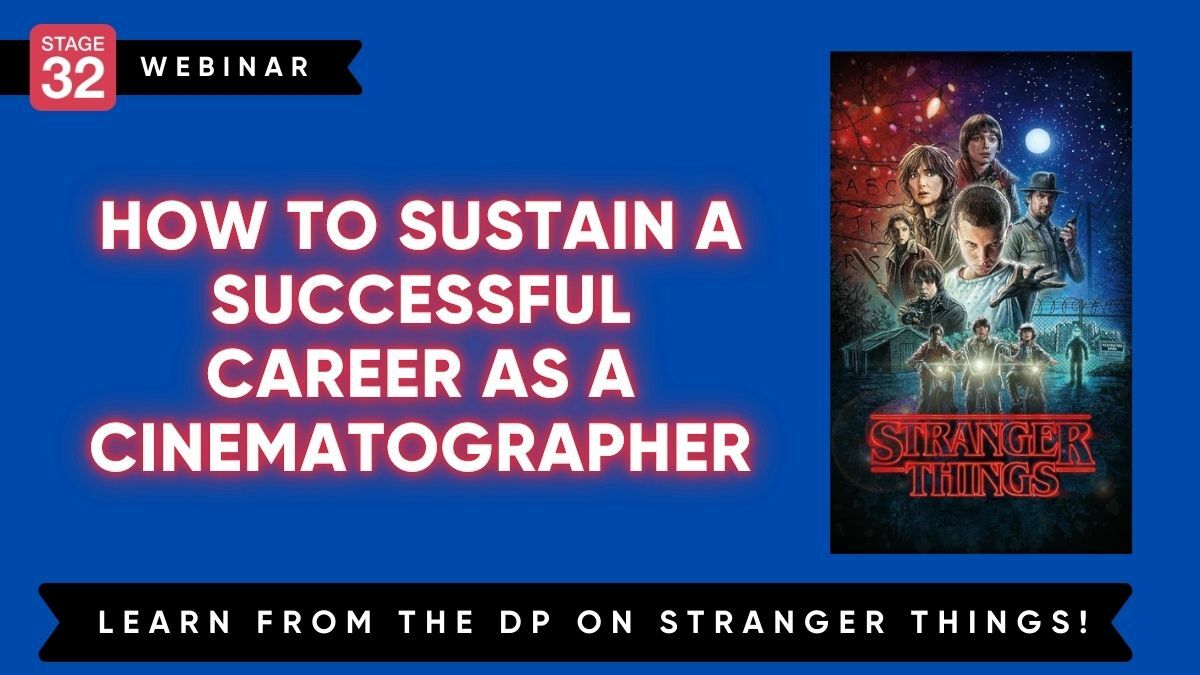
We go through many uncertainties as a writer, from the initial steps of trying to write something, perhaps inspired by a film we’ve watched or a book that we’ve read. We set out with great enthusiasm and then stumble along with trepidation when things don’t read well, or look like they did in our head.
Some of us give up, thinking that our imagination outweighs our abilities, or as the Roman writer Juvenal wrote in his Satires, “What good is sex when desire outweighs performance.”
And so we fumble along, not feeling confident but unsure what to do about our performance anxiety. Who to talk to? You have sex counsellors, but are there writing counsellors?
Instead of finding someone to help, to meet with face to face, we put our browsers on the Incognito setting and search for script gurus. Sadly, some are bottom-feeders and how are you to know that, if you don’t part with some money first? It seems like an insult to pay for being duped.
None of them, it is a relief to know, ask you about your relationships with your parents or how you fared with potty training. It’s all about process, from the arousal of your imagination, to putting your pen on paper flesh. Lovemaking in three acts just threw you a curve ball, coitus was interrupted by muscle fatigue, your brain that is, or you got too excited too quickly and covered the paper with the premature ink blots of your seminal thoughts.
You thought it might be, but it turns out not to be that immaculate conception. Reading books about it is one thing, but you can’t take the manual to bed whilst you fumble along trying to find what to do next. You can’t hand it to a partner and ask what they think this means, nor turn the book upside down and see if any clues fall out, or it looks better from a different angle.
A ‘Sex for Dummies’ manual is more likely to lead to the ‘Sex with Dummies’ variety, rather than real lovemaking between two people - each with a pulse, of course.
Maybe talking to someone would be better after all, who could address your performance anxieties? Maybe there’s a community of similar people, fellow fumblers of desire? Maybe it’s called Stage 32? Maybe?
You’ll be fine here, as long as they don’t start asking you if you are a Freudian or a Jungian writer; a potty fetishist or wrestling with your archetypal shadow self. This isn’t much of a choice and you don’t want to be pigeon-holed.
This is however, the season of immaculate conception, and so I wanted to say something about moving on from those initial trials and tribulations, embarrassments and yes, ecstasies. How finding that the more I wrote, the more I found out about myself; what my purpose is and who I am as a writer.
James Baldwin said that it is the writer’s job to disturb people; I take this in the light of his writing ‘The Artist’s Struggle for Integrity’, where he stated that safety was an illusion and that we writers ought to work outside any system offering that security and undermine it.
In writing my novel “0w1:believe” and the screenplay “Seeing Rachel” my aim was to disturb the comfortable, not with the blatant shock from a hammer blow of disgust, but to do what Tarkovsky had prescribed and investigate your characters at a time of extreme tension, of emotional imbalance, to see if they break or stand firm – and hopefully with a few modifications!
We need to undertake this investigation to find out what the character stands for, to see them through the trials of life (story) and gain clarity, thus expelling the vague and inexplicit and getting them to a point where they know what their commitments are.
Since reading this pearl of wisdom from Tarkovsky, it has been my aim to create those character journeys. This goes not just for the main character(s), but for the supporting characters too. So that we may find out what being a witness or co-experiencer of those ‘extreme tensions’ brings to them; clarity or obscurity, a protagonist for the protagonist or an antagonist bent on making the situation worse.
About a week ago, I was listening to a programme on BBC Radio 4, hosted by Melvyn Bragg. It was on Chinese Language Reform and the impact Hu Shih had on the movement back in 1917/18.
I read a little more about this and was inspired to find his four points of the ‘Literary Revolution’ and thought of its relevance to us now, at Stage 32. He had four pieces of advice to the writer:
1. Speak only when you have something to say.
2. Speak what you want to say and say it in the way you want to say it.
3. Speak what is your own (voice) and not that of someone else.
4. Speak in the language of the time in which you live.
Write because you have to. (Compulsion)
Write in your own style, not someone else’s. (Definition)
Write as yourself and don’t try to ape the latest success story. Don’t be a copyist, but carve out your own worlds. (Authenticity)
Write for a contemporary audience with a language they understand. (Connection)
Use this as a checklist before deciding to write anything.
Do you have something to say? Utilise the correct means, that is, genre, to say it.
Use your own voice; this takes us back to what Chris Morley was saying about finding your own voice. Write in the vernacular not in intellectual-ese, or antiquated nuance.
The only restriction on your imagination is your vocabulary.
I found Tarkovsky’s advice to be invaluable. Don’t have a hero/heroine untouched, unscathed by cruel circumstance or the harsh blows of fate or destiny. Write about what really matters (to them, to you and to the world you are trying to reach), so that you can not only disturb your characters, but your audience too.
If I touch on social issues, I don’t want to employ didactic language, but multi-faceted nuances; uncertainty pitted against certainty for the flawed or challenged character. After all, every one of us responds to, or reacts to tension differently and if there’s no growth in the character in the light of those difficulties, then perhaps all we’ve managed to create is a caricature of humanity.
Kieslowski, the great Polish filmmaker said that he likes to set up a rule for his films and then break it, once. Why? Because that’s where the shock is.
So, in spouting about characters learning or growing from their mistakes, here’s the exception to that rule. David Fincher,
“I like characters who don’t change, who don’t learn from their mistakes.”
There you go. That gives us a flexibility for developing any character, in achieving what Tarkovsky called ‘final definition’ which can sound like having an ‘all’s well that ends well’ ending. But. Perhaps. There is a clarity in what we see and it’s that they just haven’t learnt anything from all the difficulties they’ve been through. Brad Pitt’s character – David Mills - in Fincher’s film ‘Se7en’ comes to mind.
My writing has led me to seeing with some clarity, that I want, like David Fincher, to deal with ‘adult themes’ in my work. Here’s another quote,
“Some people go to the movies to be reminded that everything’s okay. I don’t make those kinds of movies.”
This is my aspirational point. Thank you, David Fincher.
And whilst we have gone through various ages and stages of storytelling, dealing with ‘heroes’ and ‘anti-heroes’, from Homer’s ‘Odyssey’ to Chris Carter’s anti-hero in Agent Mulder, I didn’t want to work with such dualistic, ping-pong notions of character.
And so, when writing “0w1:believe” I was determined to explore the work of the ‘sub-hero’. That is, not someone who is in the limelight of heroism or the shady darkness of frailty and fumbled purpose - a melancholic with high ideals and the inability to reach them.
The Sub-Hero would be someone who did not follow this established pattern, but who worked beneath the surface of things; of the problem, the injustice of control. They were to be sub-versive, working for their cause in a concealed way; underground, clandestine or to add an even greater depth (sub)-liminal seducers of the status quo.
I will leave you with my own Advent Blessing of sorts, taken from the Ancient Chinese, 9th Century (CE) Daoist essay called Wunengzi.
“As for the nature of water, when it is dammed up, it forms clear pools, when it is channelled, it flows, when it rises up and evaporates, it becomes clouds and it will rain, when it lands on the earth, it will moisten it, it forms rivers and oceans but feels no need to boast of its vastness, it may be in ravines and caves but it is not embarrassed, shamed by its smallness, it may divide into one-hundred rivers but it will not be exhausted, it will benefit the ten-thousand things (all of reified reality) and not run out of energy, or quit, it is the most pliant of things.”
And so, whatever form you as the water/writer take, whether a small pool, a raging channel, a large ocean or are hidden in a cave; be content that no matter what shape you take and where you are in your career, you are still water, your current form doesn’t matter. But sometime, you will make it to the Ocean.
And, here I am at the Advent of a Writer, still full of aspirations to be a writer-director, or to work on my own TV Series and be someone like Alan J Pakula, who worked collaboratively, but also was a ‘fierce protector of his story’.
What will 2022 bring to these aspirations? Keep in touch...and let’s find out together.
And...Happy Christmas to all the writers on Stage 32!
IMAGE: Tarkovsky’s ‘Stalker’.



1 person likes this
Thanks for the discussion. I have printed this out to enjoy.
John Roane thank you John. I hope you do enjoy it. And please share your thoughts.
Thanks, Geoff, How about writing a blog post about this?
Leotien Parlevliet Hi, I’m not sure who to ask about that.
1 person likes this
I can't cite you a direct origin, but George Bernard Shaw was allegedly giving a presentation at either Oxford or Cambridge, He stepped up to the podium and asked if everyone there wanted to write. All gave a resounding yes. Shaw then said "go write" and left. I read a lot about writing and received an MFA in 2019 to give me a good base in academic literature and the academic approach. It all boils down to writing, just write, even if it's crap. A writer friend gave me a sticker for my computer. It says in capital letters BICHOK. It means butt in chair, hands on keyboard. I follow that rule as much as I am able.
1 person likes this
Apocryphal or not, I love that story, John Roane ! You can edit bad pages but you can't edit no pages! (Questionable grammar there...)
2 people like this
There's another story about George Bernard Shaw and Churchill. Sources around both men claimed the exchange never occurred, but who knows. When Shaw's play, Major Barbara, opened, he sent Churchhill two tickets for opening night and told him to "bring a friend if you have one." Churchill allegedly replied, "Can't make it for opening, but will be there the second night, if there is one." Shaw was Irish and had no love for the English. It's great sarcasm, even if it didn't happen.
1 person likes this
John Roane BICHOK…my assumed position.
1 person likes this
John Roane love the sarcasm from Churchill!
I think you´ve to ask, Jason Mirch, Geoff.